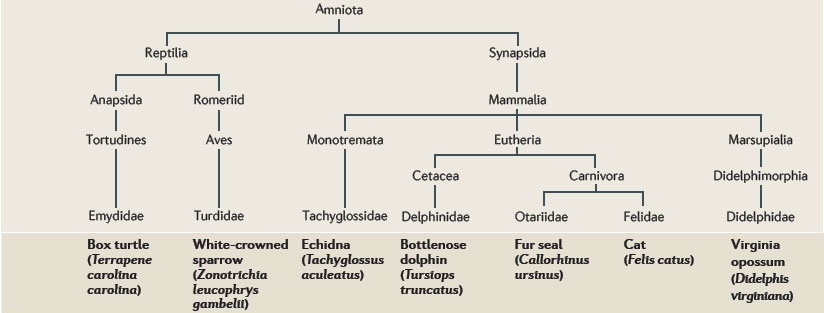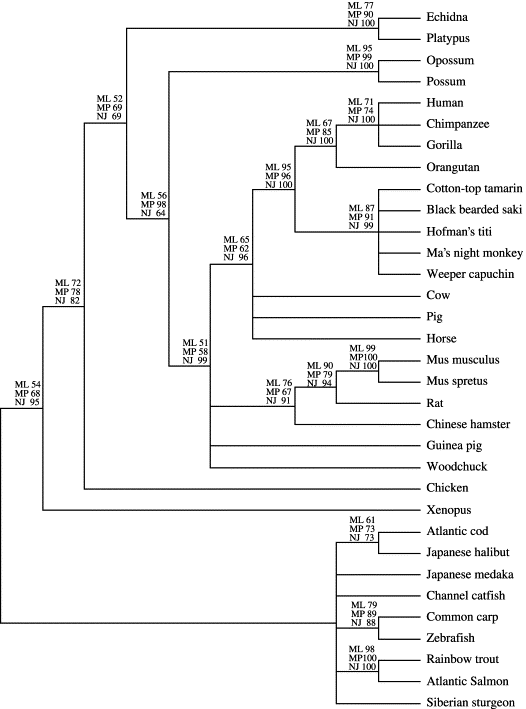Classification
(Encyclopedia of Life 2014)
Domain- Eukarya
Tachyglossus aculeatus belongs to the Domain of Eukarya. Eukaryotes have nuclei and membrane bound structures within their cells. They can be unicellular or multicellular, like the Echidna. Eukarya includes many organisms including Northern Banded Water Snakes, Cow Patty Mushrooms, and many more.
Kingdom- Animalia
Organisms that belong to the kingdom Animalia are heterotrophs, so they get their energy from other organisms. Animalia are also multicellular and do not have structural cell walls. In addition, animals are motile at some point in their life. North American Martens and Japanese Puffer Fish are organisms in the Animalia Kingdom.
Phylum- Chordata
Chordata are vertebrates, so they have a backbone. They also have bilateral symmetry. Chordata are triploblastic, which means that they have three tissue layers. There are many organisms in the phylum Chordata including humans, Great Seahorses, and Wild Turkeys.
Class- Mammalia
Mammalia have mammary glands, which produce milk for their young. They are also endothermic, so they internally produce their own body heat. The North American Beaver, Red Kangaroo, and Snow Leapord are all mammals.
Order- Monotrematae
Monotremes are the oldest living group of mammals in the
world. The short-nosed echidna is one of three surviving
monotremes. The other two are the platypus and the long-nosed
echidna (Rismiller and McKelvey 2003). Unlike all other mammals,
monotremes lay eggs. This differentiates them from the
live-births that normally separate
mammals
from other classes.
Family- Tachyglossidae
The family Tachyglossidae is made up the long-nosed and short-nosed echidnas. They both lay eggs and live in Australia.
Genus- Tachyglossus
The genus Tachyglossus only includes the short-nosed echidna (Tachyglossus aculeatus). Their short nose separates them from the long-nosed echidnas.
Species- Tachyglossus aculeatus
The Tachyglossus aculeatus is the scientific name for the short-nosed echidna. Tachyglossus means “quick-tongued” and aculeatus means “equipped with spines” (Encyclopedia of Life 2014). For more information about the echidna's tongue and spines, go to Form and Function.
To find out more information about the classification of short-nosed echidnas, go to the Encyclopedia of Life.
Phylogenetic Trees
The phylogenetic tree is from J. M. Siegel, 2009. The tree shows how Tachyglossus aculeatus relate to other organisms.
This phylogenetic tree is from K. B. Miska, L. Hellman, and R.D. Miller, 2003. The tree shows how echidnas relate to other members of the Kingdom Animalia.

